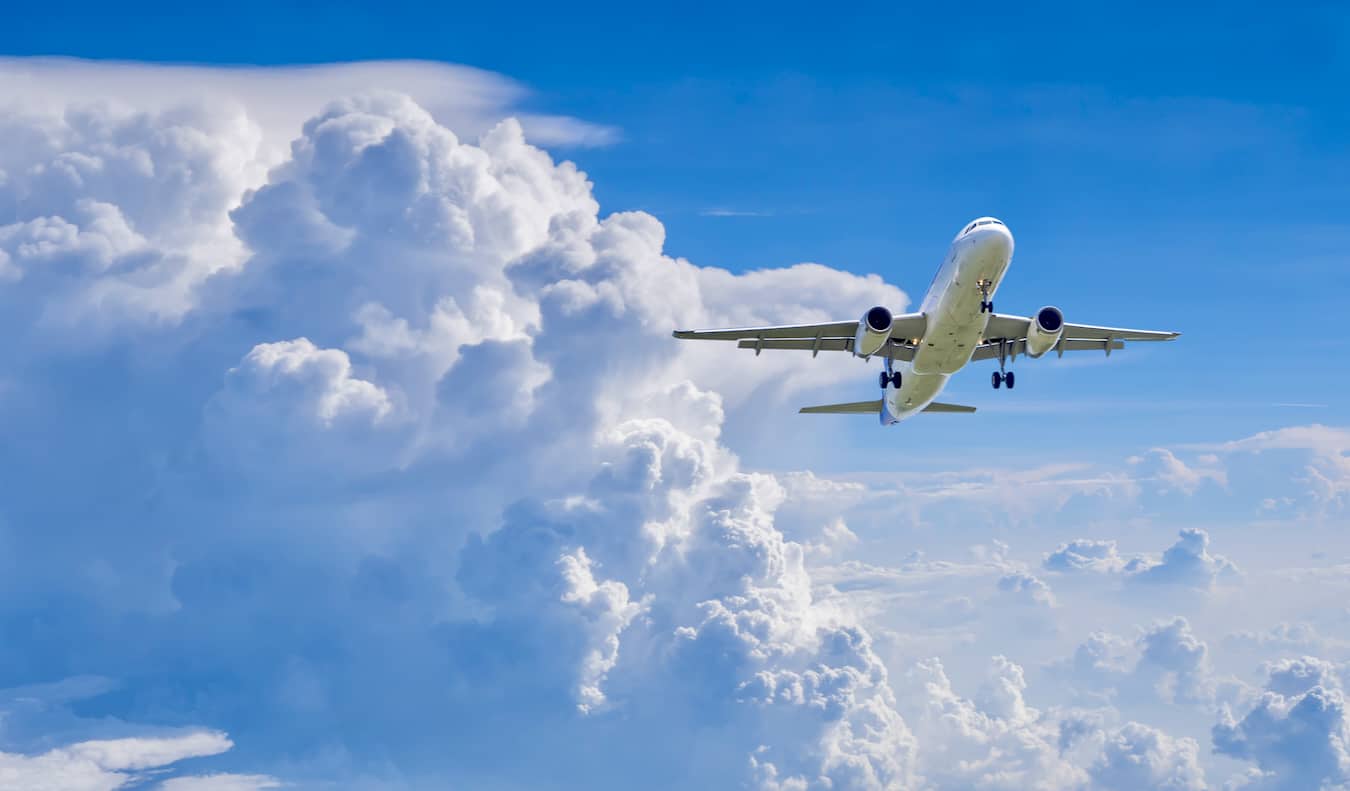
Last Updated: 1/12/24 | January 12th, 2024
Travel insurance is one of the most important things you need when you travel — yet it’s often overlooked by travelers planning their trip.
You wouldn’t drive a car without car insurance or own a home without home insurance. Why would you risk traveling the world without travel insurance?
While it may seem like an unnecessary expense, travel insurance provides a vital safety net when you’re abroad.
Unexpected costs due to illness and injury, canceled flights, damaged electronics, lost luggage, the death of a family member back home — these are all covered by travel insurance.
In a nutshell, travel insurance is an all-purpose emergency coverage plan. It’s the single most important thing you should get for your trip and something I strongly, strongly advise travelers to never leave home without. I’ve seen it help so many people over the years – people who would have been out thousands of dollars otherwise.
Myself included.
I used it for a doctor in Argentina, when my camera broke in Italy, when my eardrum popped in Thailand, and when my luggage was stolen in South Africa.
Each time I was reimbursed for my expenses and was made whole again.
Travel insurance was there when my friend had to be helicoptered out of the Amazon after he fell off a boat, when another friend’s father died and she had to fly home, and when another friend got her bag stolen.
Travel insurance is designed to make sure you don’t lose a ton of money if an emergency happens abroad. Since most domestic health insurance programs don’t cover you overseas and travel credit cards offer limited protection, buying travel insurance is something you definitely need to protect you against the unknown.
Since travel insurance is one of the most complex, important, and confusing aspects of trip planning, I want to break it down for you, help you understand what it is about, and show you how to pick the best travel insurance plans in just a few steps!
Quick Overview: The Best Insurance Companies
Table of Contents
- What to Look For in a Great Travel Insurance Plan
- What’s Not Covered By Your Travel Insurance
- Travel Insurance Loopholes: What To Look For
- The 4 Best Travel Insurance Companies
- Buy Your Travel Insurance As Soon As Possible
- A Note on COVID-19 (and Other Pandemics)
- Final Thoughts: Why Buying Travel Insurance is a Must
What to Look For in a Great Travel Insurance Plan
Insurance is a billion-dollar business and everyone wants their hand in the cookie jar. Consequently, you face a mind-numbing number of companies, policies, and terminology that can be confusing and overwhelming.
And, in the fine print, you’ll often discover that plans aren’t as good as they initially appear.
So, what should you do?
First, make sure your travel insurance offers a high coverage limit on your medical expenses. A good company will provide up to $100,000 USD in coverage care, though more expensive policies will cover you for higher amounts. The maximum coverage limit you can find is around $2,000,000 USD, though I’m not sure why you would ever need a limit that large.
High coverage limits are important because if you get sick, injured, or need serious attention and have to seek professional care, you want to make sure your high hospital bills are covered. The worst thing you can do is go cheap and get a policy with a $20,000 USD coverage limit, break a leg, and reach that limit before they are done taking care of you. Don’t be cheap with your health. Ensure you have coverage for at least $100,000 USD.
Second, you want to make sure your travel insurance policy also covers emergency evacuation and care that is separate from your medical coverage. If you are hiking in the woods and you break your leg, your policy should cover your evacuation to the nearest acceptable medical facility.
If a natural disaster occurs and you need to be evacuated to somewhere else, your plan should cover that as well. This protection should cover an expense of up to $300,000 USD.
Additionally, make sure you understand if your evacuation coverage will pay for you to get home or if it will just send you to the nearest acceptable facility.
For example, if you break your leg abroad, most insurance policies will pay for your hospital bills. However, they won’t pay for you to get home since it’s not a life-threatening injury requiring advanced care.
Standard emergency evacuation coverage frequently only moves you if your current facility is inadequate or if it’s “medically necessary.” Only then will they pay for a flight home.
In short, double-check if your company will cover the cost of your flight back home if you need it.
If you’d prefer not to stay in a foreign hospital for treatment and recovery, you should look into a medical transport membership program like Medjet. They ensure that, should you be hospitalized abroad, you’ll be able to be repatriated — something many travel insurance policies can’t guarantee.
Third, great travel insurance plans always include the following provisions:
- Coverage for most countries in the world (including the places you plan on visiting).
- Some coverage for your electronics (and have the option for a higher coverage limit).
- Coverage for injury and sudden illnesses.
- Offer 24/7 assistance (you don’t want to call to be told to call back later).
- Coverage for lost, damaged, or stolen possessions like jewelry, baggage, documents, etc.
- Coverage for cancellations for hotels, flights, and other transportation bookings if you have a sudden illness, death in the family, or some other emergency.
- Coverage for political emergencies, natural disasters, or strife in the country that causes you to head home early.
- Financial protection if any company you are using goes bankrupt and you are stuck in another country.
A quick note on electronics: Most companies only have a small limit (
Moreover, many regular and home insurance companies offer insurance plans that can help you cover your electronics.
If you’re traveling with a camera, laptop, phone, and other electronics, make sure you have suitable coverage. They’re usually the things most likely to be lost, get stolen, or break.
What’s Not Covered By Your Travel Insurance
Just as important as knowing what your plan covers is knowing what it doesn’t cover. Generally speaking, most plans don’t cover:
- Accidents sustained while participating in extreme adventure activities such as hang gliding, paragliding, or bungee jumping (unless you pay for extra coverage).
- Alcohol- or drug-related incidents.
- Carelessness in handling your possessions and baggage.
- Recklessness (how “reckless” is defined is a matter up to each company).
- Pre-existing conditions or general check-ups. For example, if you have diabetes and need to buy more insulin, you won’t be covered. If you want to go see a doctor for a general check-up, you aren’t covered either.
- Lost or stolen cash.
- Your theft coverage won’t cover you if you left something in plain sight or unattended.
- If civil unrest makes your destination unsafe but your government hasn’t called for an evacuation, you’re probably out of luck too.
Travel Insurance Loopholes: What To Look For
Even the best travel insurance have their limits. Often, in the fine print, you’ll find that plans aren’t as good as you thought.
The medical portion of travel insurance is more about emergency care than being a replacement for your normal healthcare. A lot of people purchase travel insurance get disappointed when they find out they can’t go get an annual physical with it.
Remember, you get what you pay for. Maybe you see two companies offer similar plans but one is really cheap?
Why?
Usually, it’s because the devil is in the details and they have smaller payouts, take longer to process claims, deny more people, or have so many rules in the fine print that it turns out you aren’t going to get paid when you think you are!
Travel insurance is accident insurance. It is there to protect you in case of emergency and, if need be, get you home in a hurry. If you want a global health plan (because you’re now an expat or digital nomad living abroad), you need a completely different type of plan from regular traveler insurance (Insured Nomads has plans like this, for example).
Here’s a helpful chart that summarizes common concerns and the corresponding coverage you’ll need. Use it to help you find a suitable travel insurance plan:
The 4 Best Travel Insurance Companies
The world is FILLED with insurance companies. You’re going to come across hundreds of them in your search for a reliable and affordable provider. To help you separate the wheat from the chaff, I’m going to list my favorites.
Below are the companies I would be OK with my mother using. If you’ve found a company and it’s not listed here, it’s because I probably wouldn’t use them. I’ve researched hundreds of policies over the last ten years and have found the following companies to be reliable:
The #1 Travel Insurance Company for Travelers!

I use them because I can purchase and renew my insurance policy online in a matter of minutes, they have a very friendly and responsive staff who answer questions and help solve problems via social media, they have great customer feedback, and most importantly, they provide a lot of coverage at a super affordable price. You can read my full Safety Wing review here.
Other good travel insurance companies to consider:
- Best for digital nomads and expats
- The closest thing to normal health insurance
- Covers non-emergencies
- Telehealth & mental health coverage
- Short-term and annual plans
- Extensive medical transport coverage
- Available for residents of USA, Canada, and Mexico
- Coverage for COVID-19
- Limited time spent in foreign medical facilities
- Compare plans from 23 providers
- Best option for travelers over 65
- “Anytime Advocates” ask insurer to give your claim a second look if you think it was unfairly denied
- Guaranteed low prices
- Comprehensive medical and cancelation coverage
- Coverage for adventure sports/activities
- Easy online claims process
- 24/7 customer support
Buy Your Travel Insurance As Soon As Possible
You can buy travel insurance up until the day you leave for a trip (since it usually takes 24-48 hours to kick). Some companies, like Safety Wing, allow you to buy plans abroad. You can buy travel insurance even after you’ve booked your flight, so long as the policy is activated before you depart.
Even though you can wait until you leave, it’s best to get your travel insurance as soon as possible. Every day you wait, there’s a chance that something could happen, and you can’t get travel insurance after something goes wrong.
If a hurricane ruins your trip, your travel insurance would only cover you if you bought it before the hurricane formed. Buy a plan the day after you go to the doctor but before he tells you you’re sick? Your plan won’t cover you since your original visit happened BEFORE the plan.
Don’t wait to get insurance. I’ve seen it happen too often. The second you know you are going somewhere and have the dates, buy travel insurance!
You don’t want to end up like my friend in Peru, who decided against coverage, only to break her arm and have to spend lots of money to get it fixed in Lima. It’s always better to be safe than sorry.
A Note on COVID-19 (and Other Pandemics)
As many travelers learned the hard way, most travel insurance policies do not cover pandemics. Until now, that really hasn’t been a concern for most travelers, including me. Prior to 2020, I never really gave the “pandemic clause” much thought when reading my insurance policies.
However, these days pandemic coverage is at the forefront of every traveler’s mind (and rightly so).
Fortunately, insurance companies have adapted and most companies now provide limited coverage for COVID-19 (or other pandemics). This limited coverage usually includes trip cancelation or delay, though some also have medical coverage for COVID or transportation home (as is the case with Medjet). SafetyWing, and Insured Nomads also provide coverage for COVID-19.
Before you buy a plan anywhere, be sure to read the fine print regarding pandemics and COVID-19. Make sure you fully understand what is and is not included so you can take appropriate action should a situation arise. When in doubt, call them and speak to a representative. Don’t risk your health on assumptions!
Final Thoughts: Why Buying Travel Insurance is a Must
I know you’re thinking right now, “Ok, I know what travel insurance is now…but do I really need it?”
The answer is yes.
For one simple reason: you aren’t Superman or Wonder Woman. Over a decade of traveling the world has taught me that accidents happen. You may be in perfect health right now but can you say 100% you won’t get sick in the jungle of Asia or hurt climbing a mountain in Africa?
Can you say no one will steal your stuff in Spain or Italy or that you won’t pop an eardrum diving in Tahiti?
Can you say your flights won’t ever get delayed or canceled?
No, you can’t.
And that’s why smart travelers get insurance. Because, for just a couple of dollars a day, you’re going to get all those things covered — and more.
I hope nothing bad happens to you on the road but, if it does, insurance will cover it all. It’s more than just health coverage. It’s “something bad happened to me” coverage. It’s all-inclusive and there for you.
So be smart and get travel insurance. You can use the widget below to get a quote today:
STILL CONFUSED? Here are 10 common questions (and answers) about your travel insurance.
P.S. – If you’ve found this article helpful, please consider booking via the links here as it helps keep the website community supported and advertiser free. All the companies are ones I use myself in my own travels. If you have any questions, email me!
Book Your Trip: Logistical Tips and Tricks
Book Your Flight
Find a cheap flight by using Skyscanner. It’s my favorite search engine because it searches websites and airlines around the globe so you always know no stone is being left unturned.
Book Your Accommodation
You can book your hostel with Hostelworld. If you want to stay somewhere other than a hostel, use Booking.com as it consistently returns the cheapest rates for guesthouses and hotels.
Don’t Forget Travel Insurance
Travel insurance will protect you against illness, injury, theft, and cancellations. It’s comprehensive protection in case anything goes wrong. I never go on a trip without it as I’ve had to use it many times in the past. My favorite companies that offer the best service and value are:
- SafetyWing (best for everyone)
- Insure My Trip (for those 70 and over)
- Medjet (for additional evacuation coverage)
Want to Travel for Free?
Travel credit cards allow you to earn points that can be redeemed for free flights and accommodation — all without any extra spending. Check out my guide to picking the right card and my current favorites to get started and see the latest best deals.
Need Help Finding Activities for Your Trip?
Get Your Guide is a huge online marketplace where you can find cool walking tours, fun excursions, skip-the-line tickets, private guides, and more.
Ready to Book Your Trip?
Check out my resource page for the best companies to use when you travel. I list all the ones I use when I travel. They are the best in class and you can’t go wrong using them on your trip.
Disclosure: Please note that some of the links above may be affiliate links, and at no additional cost to you, I earn a commission or fee if you make a purchase or get a quote from some parties using these links. I do not represent any of the companies above and I only work with products and companies I personally use.



